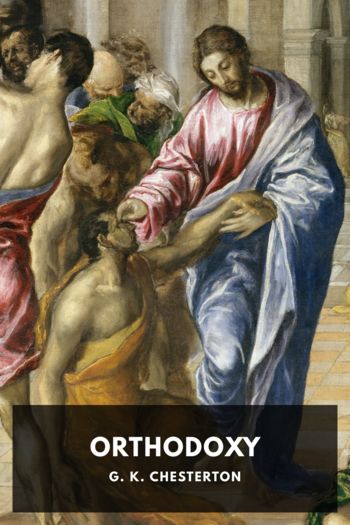Heretics by G. K. Chesterton (best way to read e books TXT) 📕

- Author: G. K. Chesterton
Book online «Heretics by G. K. Chesterton (best way to read e books TXT) 📕». Author G. K. Chesterton
Description
G.K. Chesterton was an English writer, journalist, philosopher, poet and lay theologian. He delighted in standing conventional wisdom on its head in order to expose what he considered to be the lack of substance in the “vague modern.”
In Heretics, he touches on a range of topics, including social Darwinism, eugenics, nihilism and atheism, while enumerating the flaws he finds in the work of his intellectual contemporaries such as Rudyard Kipling, Friedrich Nietzsche, George Bernard Shaw, and H. G. Wells.
Free e-book «Heretics by G. K. Chesterton (best way to read e books TXT) 📕» - read online now
Similar e-books:





Comments (0)